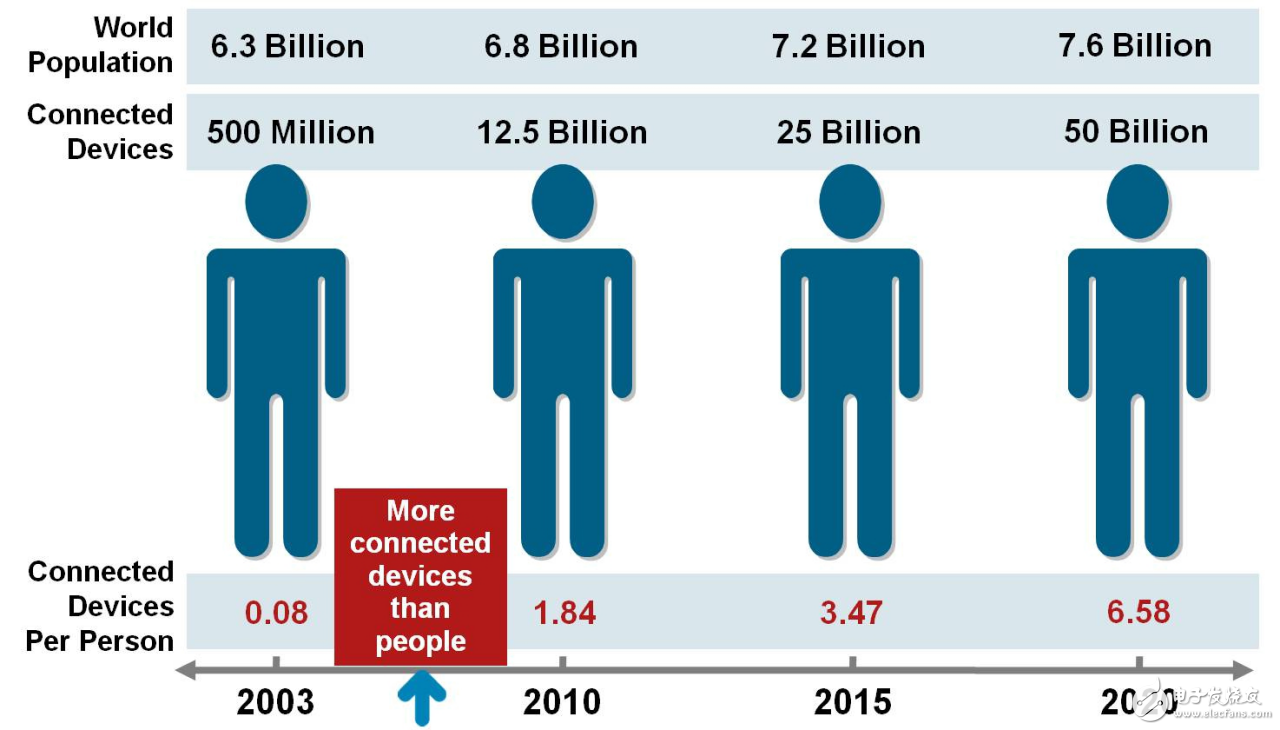資料介紹
The Internet of Things
How the Next Evolution of the Internet Is Changing Everything
The Internet of Things (IoT), sometimes referred to as the Internet of Objects, will change everything—including ourselves. This may seem like a bold statement, but consider the impact the Internet already has had on education, communication, business, science, government, and humanity. Clearly, the Internet is one of the most important and powerful creations in all of human history.
Now consider that IoT represents the next evolution of the Internet, taking a huge leap in its ability to gather, analyze, and distribute data that we can turn into information, knowledge, and, ultimately, wisdom. In this context, IoT becomes immensely important.
Already, IoT projects are under way that promise to close the gap between poor and rich, improve distribution of the world’s resources to those who need them most, and help us understand our planet so we can be more proactive and less reactive. Even so, several barriers exist that threaten to slow IoT development, including the transition to IPv6, having a common set of standards, and developing energy sources for millions—even billions—of minute sensors.
However, as businesses, governments, standards bodies, and academia work together to solve these challenges, IoT will continue to progress. The goal of this paper, therefore, is to educate you in plain and simple terms so you can be well versed in IoT and understand its potential to change everything we know to be true today.
IoT Today
As with many new concepts, IoT’s roots can be traced back to the Massachusetts Institute of Technology (MIT), from work at the Auto-ID Center. Founded in 1999, this group was working in the field of networked radio frequency identification (RFID) and emerging sensing technologies. The labs consisted of seven research universities located across four continents. These institutions were chosen by the Auto-ID Center to design the architecture for IoT.1
Before we talk about the current state of IoT, it is important to agree on a definition. According to the Cisco Internet Business Solutions Group (IBSG), IoT is simply the point in time when more “things or objects” were connected to the Internet than people.2
In 2003, there were approximately 6.3 billion people living on the planet and 500 million devices connected to the Internet.3 By dividing the number of connected devices by the world population, we find that there was less than one (0.08) device for every person. Based on Cisco IBSG’s definition, IoT didn’t yet exist in 2003 because the number of connected things was relatively small given that ubiquitous devices such as smartphones were just being introduced. For example, Steve Jobs, Apple’s CEO, didn’t unveil the iPhone until January 9, 2007 at the Macworld conference.4
![]()
Cisco IBSG ? 2011 Cisco and/or its affiliates. All rights reserved. Page 2
White Paper

Explosive growth of smartphones and tablet PCs brought the number of devices connected to the Internet to 12.5 billion in 2010, while the world’s human population increased to 6.8 billion, making the number of connected devices per person more than 1 (1.84 to be exact) for the first time in history.5
![]()
Methodology
In January 2009, a team of researchers in China studied Internet routing data in six-month intervals, from December 2001 to December 2006. Similar to the properties of Moore’s Law, their findings showed that the Internet doubles in size every 5.32 years. Using this figure in combination with the number of devices connected to the Internet in 2003 (500 million, as determined by Forrester Research), and the world population according to the U.S. Census Bureau, Cisco IBSG estimated the number of connected devices per person.6
![]()
Refining these numbers further, Cisco IBSG estimates IoT was “born” sometime between 2008 and 2009 (see Figure 1)。 Today, IoT is well under way, as initiatives such as Cisco’s Planetary Skin, smart grid, and intelligent vehicles continue to progress.7
- 2020物聯網白皮書(信通院)
- 物聯網_ZETA生態白皮書
- 鋰離子電池產業白皮書 26次下載
- 物聯網白皮書分享(2020年) 1次下載
- LE audio白皮書
- 高通 Snapdragon Sound 技術白皮書
- 和利時工業信息安全白皮書下載 22次下載
- MiniGUI 技術白皮書 32次下載
- 微軟白皮書 屬于自己的全新物聯網 8次下載
- EPON技術白皮書 38次下載
- 【工信部】物聯網標識白皮書2013 17次下載
- IBM-Analytics工業4.0與物聯網白皮書 0次下載
- 物聯網白皮書(2015年) 14次下載
- 中國市場Wifi白皮書 18次下載
- 存儲基礎知識白皮書
- 文件系統-一切皆文件的設計理念 629次閱讀
- 西門子發布工業5G全連接工廠白皮書(全文) 2177次閱讀
- 《大規模光電集成賦能智能算力網絡白皮書》概述 1337次閱讀
- 白皮書上新 | Vishay 陶瓷電容快速選型指南,快接住! 1574次閱讀
- 人工智能在物聯網中的作用、優勢及應用 5209次閱讀
- 物聯網技術的原理是什么 1.3w次閱讀
- 工業互聯網平臺創新發展白皮書你了解嗎全文PPT觀看 4681次閱讀
- 德勤首發《中國人工智能產業白皮書》:中國人工智能產業深度解析 6117次閱讀
- 物聯網三方面正在改變我們的生活與工作 1259次閱讀
- 暢想未來的物聯網生活 1.9w次閱讀
- 淺析關于ZigBee的一切! 5437次閱讀
- 物聯網如何改變我們的制造業的介紹國外工業制造是如何利用物聯網的 5515次閱讀
- IT +門禁系統它的安全我們真的能相信嗎? 1991次閱讀
- 物聯網的專業技能在實際生活中的應用 7493次閱讀
- Silicon Labs閱讀照明白皮書答題活動開獎! 4834次閱讀
下載排行
本周
- 1TC358743XBG評估板參考手冊
- 1.36 MB | 330次下載 | 免費
- 2開關電源基礎知識
- 5.73 MB | 11次下載 | 免費
- 3100W短波放大電路圖
- 0.05 MB | 4次下載 | 3 積分
- 4嵌入式linux-聊天程序設計
- 0.60 MB | 3次下載 | 免費
- 5DIY動手組裝LED電子顯示屏
- 0.98 MB | 3次下載 | 免費
- 6基于FPGA的C8051F單片機開發板設計
- 0.70 MB | 2次下載 | 免費
- 751單片機PM2.5檢測系統程序
- 0.83 MB | 2次下載 | 免費
- 8基于51單片機的RGB調色燈程序仿真
- 0.86 MB | 2次下載 | 免費
本月
- 1OrCAD10.5下載OrCAD10.5中文版軟件
- 0.00 MB | 234315次下載 | 免費
- 2555集成電路應用800例(新編版)
- 0.00 MB | 33566次下載 | 免費
- 3接口電路圖大全
- 未知 | 30323次下載 | 免費
- 4開關電源設計實例指南
- 未知 | 21549次下載 | 免費
- 5電氣工程師手冊免費下載(新編第二版pdf電子書)
- 0.00 MB | 15349次下載 | 免費
- 6數字電路基礎pdf(下載)
- 未知 | 13750次下載 | 免費
- 7電子制作實例集錦 下載
- 未知 | 8113次下載 | 免費
- 8《LED驅動電路設計》 溫德爾著
- 0.00 MB | 6656次下載 | 免費
總榜
- 1matlab軟件下載入口
- 未知 | 935054次下載 | 免費
- 2protel99se軟件下載(可英文版轉中文版)
- 78.1 MB | 537797次下載 | 免費
- 3MATLAB 7.1 下載 (含軟件介紹)
- 未知 | 420027次下載 | 免費
- 4OrCAD10.5下載OrCAD10.5中文版軟件
- 0.00 MB | 234315次下載 | 免費
- 5Altium DXP2002下載入口
- 未知 | 233046次下載 | 免費
- 6電路仿真軟件multisim 10.0免費下載
- 340992 | 191186次下載 | 免費
- 7十天學會AVR單片機與C語言視頻教程 下載
- 158M | 183279次下載 | 免費
- 8proe5.0野火版下載(中文版免費下載)
- 未知 | 138040次下載 | 免費
 電子發燒友App
電子發燒友App

















 創作
創作 發文章
發文章 發帖
發帖  提問
提問  發資料
發資料 發視頻
發視頻 上傳資料賺積分
上傳資料賺積分









評論